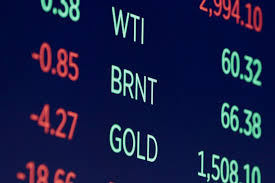
The oil market responded to the U.S. airstrike that killed an Iranian general by jumping more than $2 a barrel. The price of Brent crude rose by more than 4% on Friday to more than $69 a barrel. The uptick came as traders reacted to news of the killing of General Soleimani at the Baghdad International Airport.
Russ Mould, an investment director at stock brokerage AJ Bell, told The Guardian that the higher crude oil prices reflected concerns over the impact on global supply.
“It’s never likely to be good news for the markets when ‘World War III’ is trending on Twitter,” he added.
Oil installations and crude shipments have been increasingly targeted in recent months amid rising tensions in the Middle East. About a fifth of the global oil supply flows through the Strait of Hormuz, a narrow shipping route between Oman and Iran which is one of the world’s most important strategic choke points.
Iran seized two oil tankers – one registered in the UK, the other in Liberia – passing through the strait last July. Iran-aligned Houthi rebels in Yemen also claimed responsibility in September for launching drone attacks against a major Saudi oil facility. The attack led Saudi Arabia to shut down half its oil production, causing the biggest daily jump in global oil prices since 1988. Saudi Arabia is the world’s largest exporter of petroleum.
Oil companies listed on the London Stock Exchange rallied against a backdrop of steep losses for company shares elsewhere around the world, with gains for firms including BP and Royal Dutch Shell. Analysts said they could benefit from the higher price of crude.
The FTSE 100 index of leading UK company shares was down 50 points to 7,553 after rallying strongly over the past month.
Despite the latest attack, the price of oil remains below a peak of about $75 a barrel recorded in April last year. Several major nations have become less dependent on Middle Eastern oil in recent years, including the US, which has ramped up domestic shale production.
Source: The Guardian





